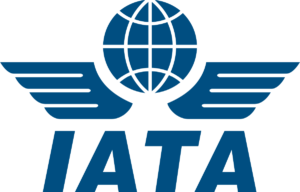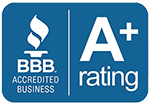When Will the U.S. Drop COVID-19 Testing Requirements for International Flights?
Image source: unsplash.com
Today, international travel is highly challenging due to the pandemic situation. But fortunately, travel is quite possible if you follow specific rules that different countries impose.
In this regard, there is the issue of travel to the United States and the requirements for the COVID-19 Test. This article will share helpful information about the requirements before, during, and after a trip to the United States.
COVID-19 Testing Requirement for International Travel to the United States
In October this year, the Centers for Disease Control and Prevention, for short the CDC, amended its order on COVID-19 Testing Requirements for international travelers to the United States. This update applies to air passengers aged 2 and over and entered into force on 6 December.
The amendment says that every passenger who will fly to the United States must present a document with a negative test result from a viral test for COVID-19. The Test needs to be taken no more than 1 day before travel.
Another way to travel is by presenting documentation of having recovered from COVID-19 in the past 90 days. To verify that the information is correct, you must give it in the form of attestation.
What Do You Need to Know about traveling to the United States?
Knowing a few crucial things about your trip and staying in the United States is essential if you consider traveling to the United States or are about to fly.
First of all, if you are a non-U.S. citizen, non-U.S. immigrant (this means you do not have citizenship, a legal residence permit, or an immigrant visa to travel to the United States), you must be fully vaccinated.
Otherwise, you will not be admitted to the United States. There are a few limited exceptions where vaccination status is not required.
These are:
- Diplomatic and other government officials officially considered to be traveling abroad
- Children under 18 years of age
- Persons in whom vaccination against COVID-19 is contraindicated. To this end, it is necessary to provide an official medical document proving this
- Participants in trials related to COVID-19 vaccines
- Persons issued humanitarian and emergency exceptions
- Persons who have been issued a type B1 or B2 visa and are nationals of a foreign country with limited availability of the COVID-19 vaccine
- Persons holding a C1 and D visa and being part of a sea crew
- Persons who are members of the armed forces, as well as their children under the age of 18 and spouses
- A person whose entry into the territory of the United States is in the interest of the country – this is determined by officials of the state, namely the Secretary of State, Secretary of Homeland Security, and Secretary of Transportation
Regardless of which column you belong to, i.e., vaccinated or unvaccinated, U.S.- citizens, non-U.S. citizens, U.S. immigrants, or non-U.S. immigrants, as well as those exempted from vaccines, must provide a negative COVID-19 test document, which must be taken no more than 1 day before the upcoming flight.
You can also submit COVID-19 recovery documentation. It is a document for a positive test result of the COVID-19 Test, which must be done no later than 90 days before the upcoming flight.
Remember that wearing a mask over your nose and mouth in closed areas of public places, such as airplanes, airports, etc., is mandatory. Refusal to wear a mask is considered non-compliance with the rules and requirements.
In addition, you need to know that fully vaccinated travelers are those in whom:
- It has been 2 weeks since the single-dose vaccine.
- It has been 2 weeks since the second dose of the vaccine.
- It has been 2 weeks since receiving the full series of an accepted COVID-19 vaccine in a clinical trial.
- 2 weeks have passed since you received the complete series of a Novavax (or Covovax) COVID-19 vaccine in phase 3 clinical trial.
- It has been 2 weeks since you received 2 doses of any “mix-and-match” combination of accepted COVID-19 vaccines.
If you have another dose of the vaccine or it hasn’t been 2 weeks since the last dose, it is considered that you have not been fully vaccinated and cannot enter the United States.

Image source: unsplash.com
Before Traveling to the United States
Before traveling to the United States, make sure you meet all the requirements. It is advisable to check the current requirements for travel to the United States, whether or not you are a U.S. citizen or U.S. immigrant.
For this purpose, we recommend that you visit the website of the CDC, where there is detailed information about all passengers.
What is currently required is:
- Official document for complete vaccination is required for non-U.S. citizens and non-U.S. immigrants. A little above in the article we shared which people are considered fully vaccinated.
- Document of a negative result from the COVID-19 Test – all passengers who are about to travel by air, including U.S. citizens and U.S. immigrants, must provide an official document stating that the result of a COVID-19 test is negative.
This test must be performed no later than 1 day before the flight date. That applies to all persons aged 2 years and over.
- Providing contact information – every passenger traveling to the United States must provide contact information. It is necessary for more accessible communication in case you have been in contact with a COVID-19 infected person or case of changes.
- Prepare all the documentation for the trip to the United States – we recommend that you check before your flight if all the necessary documents are available. It includes a passport, visa, other documents related to your entry into the country, a vaccination document, and/or test.
Please note that you cannot travel to the United States if you have visited Botswana, Eswatini, Lesotho, Malawi, Mozambique, Namibia, South Africa, or Zimbabwe in the last 14 days.
Also, do not travel to the United States if you have not yet completed the entire course of COVID-19 vaccination, tested positive for COVID, and your isolation is not complete, awaiting COVID-19 test results, or not feeling well.
During Travel
Before the flight, you must prepare all the above documents required by the airline. During the flight itself, the only thing needed for each passenger is to wear a mask to cover the nose and mouth. These are the requirements on the plane and in all indoor public places located in the United States.
After Arrival in the United States
Upon arrival in the United States, you will need to take a COVID-19 test 3-5 days after your arrival date. It is also advisable to watch for any symptoms. Last but not least, you need to follow all government recommendations and requirements that apply to air travelers arriving in the United States.
If you are not fully vaccinated, but for any of the above reasons, you have the right to travel, then in addition to taking a test, you will need to isolate yourself for 7 days.
It does not apply to passengers who have a medical record and a test document for recovering from COVID-19 that has been taken no later than 90 days. And if you want to stay more than 60 days in the United States, the requirements are to be fully vaccinated.
If You Recovered from COVID-19 Recently
If you have an official document for a COVID-19 test in the last 90 days, the result was positive, and your quarantine has passed, you can travel with this document.
In this case, self-isolation is not required, nor is it necessary to take a test within 3-5 days of your arrival in the United States.
Keep in mind that this is current information. Due to the constant increase or decrease in morbidity, travel requirements to the United States are changing.
That’s why we encourage you to stay tuned for more information on the U.S. government website or contact your Travel Advisor, who will help you get up-to-date information to avoid possible unpleasant situations before, during, and after traveling to the United States.





